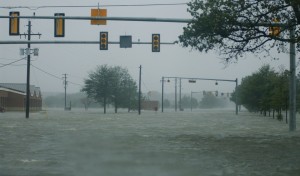Matt Sienkiewicz, recent graduate of Columbia Law School.
 Flooding is the most common and costly form of nature’s wrath, and its costs are likely to rise as the climate changes and sea levels rise. The federal government has attempted to address flooding through an insurance program aimed at effectively providing relief to those whose property is damaged by flooding and at incentivizing sound risk management. However, the federal insurance program subsidizes flood insurance premiums, and, therefore, does not require property owners to internalize the costs of living in a flood prone area. Though there have been recent efforts to address the dangers of flooding, particularly in light of the increasing risk of climate change driven flooding, political pressures have robbed these measures of their effectiveness.
Flooding is the most common and costly form of nature’s wrath, and its costs are likely to rise as the climate changes and sea levels rise. The federal government has attempted to address flooding through an insurance program aimed at effectively providing relief to those whose property is damaged by flooding and at incentivizing sound risk management. However, the federal insurance program subsidizes flood insurance premiums, and, therefore, does not require property owners to internalize the costs of living in a flood prone area. Though there have been recent efforts to address the dangers of flooding, particularly in light of the increasing risk of climate change driven flooding, political pressures have robbed these measures of their effectiveness.
If thoughtfully redesigned, the flood insurance regime could be a powerful tool for encouraging sensible coastal land use as we confront the increased danger that climate change poses to these areas. As sea levels rise and storms become more frequent and severe, damage from flooding will increase. A properly constructed insurance regime would ensure that the people affected by this increased flooding pay appropriate insurance premiums. Moreover, such a regime would discourage excess development in flood-prone areas in the first place.
Matt Sienkiewicz has written a paper describing the National Flood Insurance Program (NFIP) and discussing how the current regime discourages climate change adaptation. The paper concludes with suggestions for how readers can promote climate change adaptation by advocating for changes to the NFIP.



